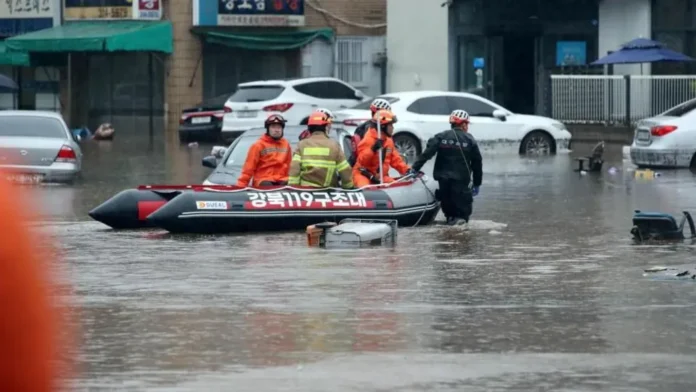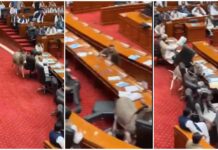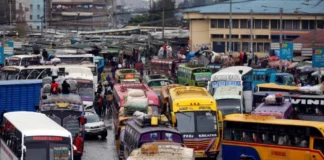At least four people have died and more than 1,300 others evacuated as unrelenting torrential rains continue to wreak havoc across South Korea, prompting the government to raise its weather-related disaster alert to the highest level.
The victims include two elderly men in their 80s, one of whom was reportedly attempting to drain floodwaters from his basement when he lost his life. Another man died after a retaining wall collapsed onto his car; he had just called his wife to say his vehicle was “being swept away.” A fourth person died from cardiac arrest during the storm.
The worst-hit areas are along South Korea’s west coast, particularly the city of Seosan, where over 400mm of rain fell in just 12 hours, a level meteorologists have described as a once-in-a-century downpour. Gwangju also recorded 426mm of rainfall on Thursday.
“I couldn’t understand how something like this could happen,” said Kim Ha-min, a 26-year-old café owner in Gwangju, who had to shut down her business after it was flooded. “I’ve never seen a flood here before, since there is no stream or river in this neighbourhood. The sewer smell is so bad now that I can’t reopen.”
Images circulating on social media show submerged homes, floating furniture, and cars nearly covered by floodwaters. One resident described the devastation online: “Everything is covered by water except the roof of my house.”
Authorities have reported several injuries, including two cases of hypothermia and two people who sustained leg injuries. As of 4:00 p.m. local time on Thursday, more than 1,300 residents had been evacuated, with emergency services continuing to monitor at-risk areas.
The Korean Meteorological Administration explained that a mix of dry air from the northwest and hot, humid air from the south formed unusually large rain clouds, intensifying the downpours. The public has been urged to avoid riverbanks, slopes, and underground spaces due to the high risk of landslides and flash floods.
Despite the ongoing rainfall, weather forecasters expect temperatures to surge next week, bringing with them the risk of a heatwave once the current storm system subsides.
Written By Rodney Mbua



















